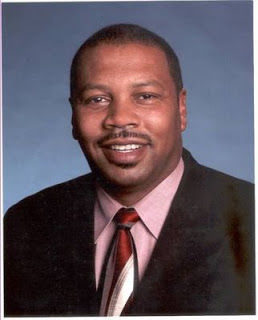
Rec district expansion more likely than not
April 11, 2018On judgeship, compromise is needed
April 11, 2018The Louisiana Legislature’s House and Governmental Affairs Committee has been assigned the task of deciding whether a bill that makes major change to the way Terrebonne Parish voters HB 861 was filed by Rep. Randal Gaines in response to a court finding that Louisiana violates the federal Voting Rights Act by maintaining an at-large method of electing judges in the 32nd Judicial District, which encompasses all of Terrebonne Parish.
The bill was originally scheduled for a committee hearing Thursday, but its sponsor, Rep. Randal Gaines D-LaPlace, has asked that it be held up and scheduled for a different day, which will likely be next week.
The late U.S. District Judge James Brady ruled last year that the current at-large method of electing judges in Terrebonne violates the law by diluting black votes, making it impossible for black voters, who appear to vote as a block in Terrebonne, to ever elect a judicial candidate of their choice.
The applicable section of the Voting Rights Act, which bars discrimination at the polls, rests on the belief that a vote must not just be cast but the choice it represents must have potential for serious consideration.
The legislation arises as the result of a suit filed in 2014 by the Terrebonne Parish NAACP and certain of its members, who alleged that their right to vote was negatively affected by the at-large voting process. An eight-day trial was conducted by Brady, leading up to his ruling.
Jerome Boykin, president of the Terrebonne NAACP, was among advocates who had prevailed on the local legislative delegation to come up with a bill that would aid Louisiana in following Brady’s ruling.
He unconditionally supports the bill filed by Gaines.
“It is clear that in our local delegation, our local legislative delegation, they don’t represent the interests of all people,” Boykin said, referring to the failure of local legislators to bring forth a bill that would actualize Brady’s ruling. “Anytime you have a violation of a group of people’s civil rights, and you sit back and do absolutely nothing it is a sad day for Terrebonne Parish.”
Gaines pledged to create a bill for establishment of a minority judicial sub-district if local legislators did not last year, during an address at NAACP headquarters where he was flanked by relatives of civil rights icon Dr. Martin Luther King Jr., who had come to show support for change.
Terrebonne Parish President Gordon Dove, who has opposed the creation of a sub-district, asserted his belief that appellate review of Brady’s decision is needed to remove the stigma it places on Terrebonne Parish as a place of intolerance. He has consistently opposed creation of multiple sub-districts, which the law proposed by Gaines creates. Dove and other opponents of multiple sub-districts are concerned because if the legislature passes such a bill and the governor signs it, the potential for appealing Brady’s ruling to the Fifth Circuit U.S. Court of Appeal is likely lost.
“They are sticking with five sub-districts,” Dove said. “The ruling Judge Brady did gives a stigma to Terrebonne Parish due to discrimination, that the 32nd was created specifically to discriminate, and the only way to vacate that ruling is to go to the Fifth Circuit. People say let’s go to court with it and we went to court. We want to go to the Court of Appeals and let the Court of Appeals make the decision of whether Judge Brady was right or wrong.”
The bill, Dove maintains, circumvents the judicial system. He also criticized Gaines for filing what is seen as a bill on a local matter that has nothing to do with his own district.
“Rep. Gaines should not be filing bills on behalf of Terrebonne Parish, that is not his position He represents his parish not Terrebonne Parish. It’s obvious that the local delegation did not file the bill.”
The New York-based NAACP Legal Defense Fund, which litigated the court case against the governor and the attorney general of Louisiana, praised the bill as one that will if passed “give all Terrebonne voters, particularly Black voters, an opportunity to elect a judge of their choice in this five-member state court.”
“The court has given the Legislature, the governmental body with the authority to redistrict, the first opportunity to remedy the violations that the court found,” a statement released Wednesday by the organization says. “The court has made clear that it will impose a solution if the Legislature does not provide a remedy.”
With the state facing a billion dollar deficit, the LDF attorneys said, the bill offers a solution that could bring all litigation on the matter to an end, and thus halt the spending that has already gone on.
“Plaintiffs’ counsel applauds Rep. Gaines for proposing a remedy to the constitutional and statutory violations in Terrebonne, even though he represents another part of Louisiana,” the LDEF’s statement reads. “Shamefully, not one member of Terrebonne’s local legislative delegation acted in response to the federal court’s ruling and invitation to correct the wrongs, despite those legislators’ unsubstantiated refrain that they serve all voters in Terrebonne. That very pattern of blocking black voters’ ability to elect their preferred judges to the 32nd JDC—by opposing six other legislative solutions between 1997 and 2011 to the voter disenfranchisement in Terrebonne—is the type of obstruction that led the federal court to find that Louisiana violated Black voters’ statutory and constitutional right to vote in the first place. However, Black voters in Terrebonne and the plaintiffs who brought a challenge to the status quo in Terrebonne are optimistic that that pattern will be broken—either via legislative support for this bill or the federal court stepping in to ensure equal voting rights.”
The Gaines bill says that the first vacancy created by the death, resignation, retirement or removal of a judge in Terrebonne Parish between the time the law might go into effect and the opening of qualifying for the 2020 elections shall be filled by an election held solely in Section 1, the sub-district that was designed to include more black voters.
In that scenario, the remaining sections, or sub-districts, will be assigned to existing judicial divisions in continuing alphabetical order. Current judicial divisions are designated from A through F. The legislation does not affect Houma City Court.
Local legislators have discussed the potential of a bill that could result in Judge Brady’s decision being followed, but have not to date come up with one of their own. Some have raised questions about whether certain aspects of the proposed sub-districts might be problematic. Among them is the splitting of election precincts. Some precincts within a district might be within one of the sections while others may not. This results in what is called “split precincts.”
That issue was dealt with by Judge Brady, who did not find that problematic.
Split precincts have been used before in some Louisiana districts, attorneys for the NAACP noted.
“The legislature allowed for there to be split precincts in Shreveport, in Caddo Parish,” said Aden. “They have done it before so why can’t they do it here, to remedy a violation of the voting rights act? And if this is a problem why didn’t they come up with an alternative as the court invited them to? “
The local Terrebonne delegation’s unwillingness to file a bill or to support the one presented by Gaines, Aden said, speaks to the very problem the trial sought to address.
“The inaction of the Terrebonne delegation continues a longstanding pattern of local white opposition to changing the voting structure of the 32nd JDC to provide Terrebonne’s black voters an equal opportunity to elect a candidate of their choice to the 32nd JDC,” Aden said. “As the federal court explained, this pattern of intentional discrimination caused six pieces of remedial legislation to fail between 1997 and 2011. Indeed, shortly before this legislation session, a judge who sits on the 32nd JDC wrote a letter to a member of the local legislative delegation urging him to refrain from proposing remedial legislation.”
U.S. District Judge Shelly Dick, who inherited the case from Brady upon his death, has ordered attorneys on both sides to file briefs on the potential for a remedy by June 28. But if no bill furthering the court’s opinion is passed during the current session, Dick maintained, then a status conference will be held.









